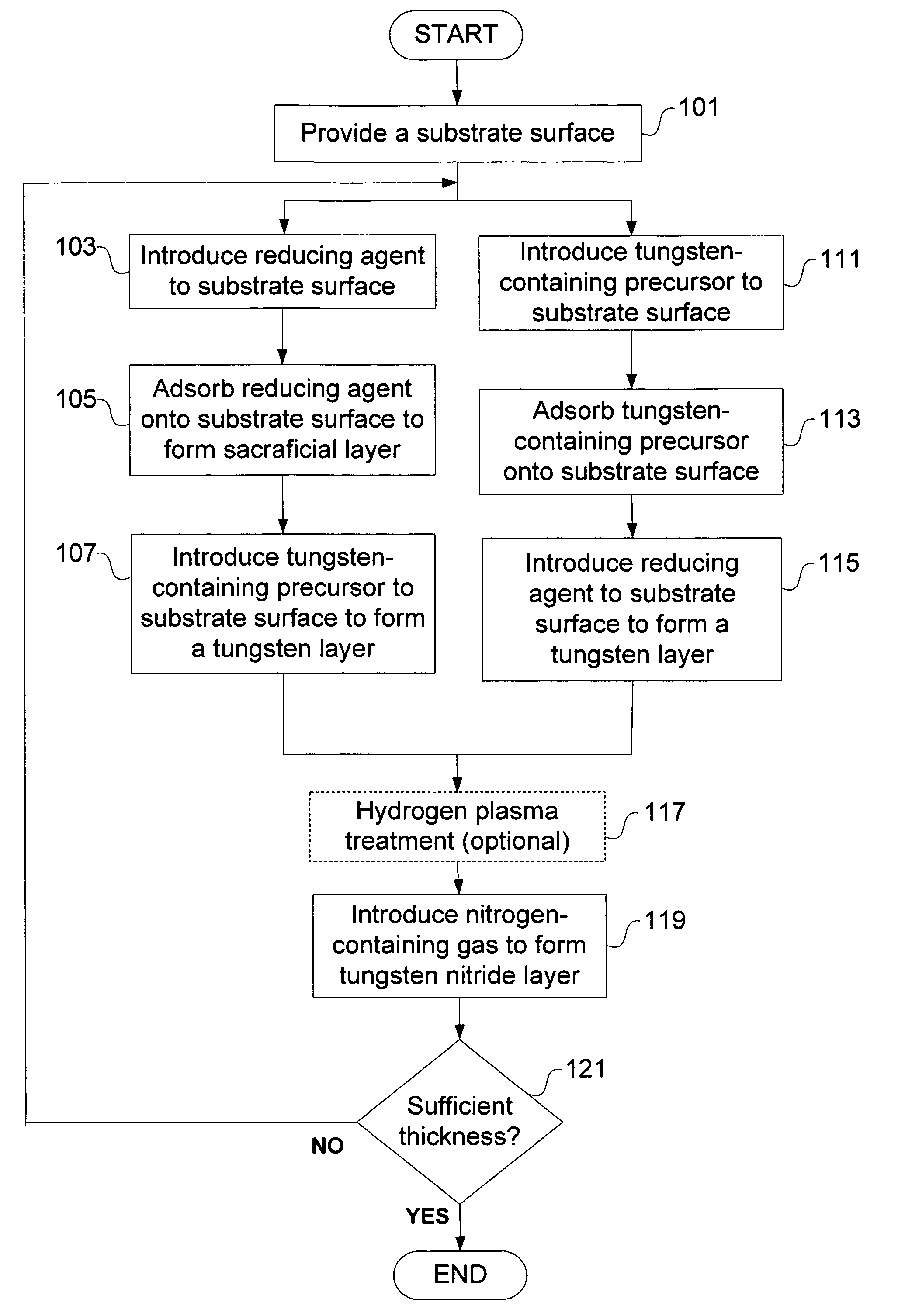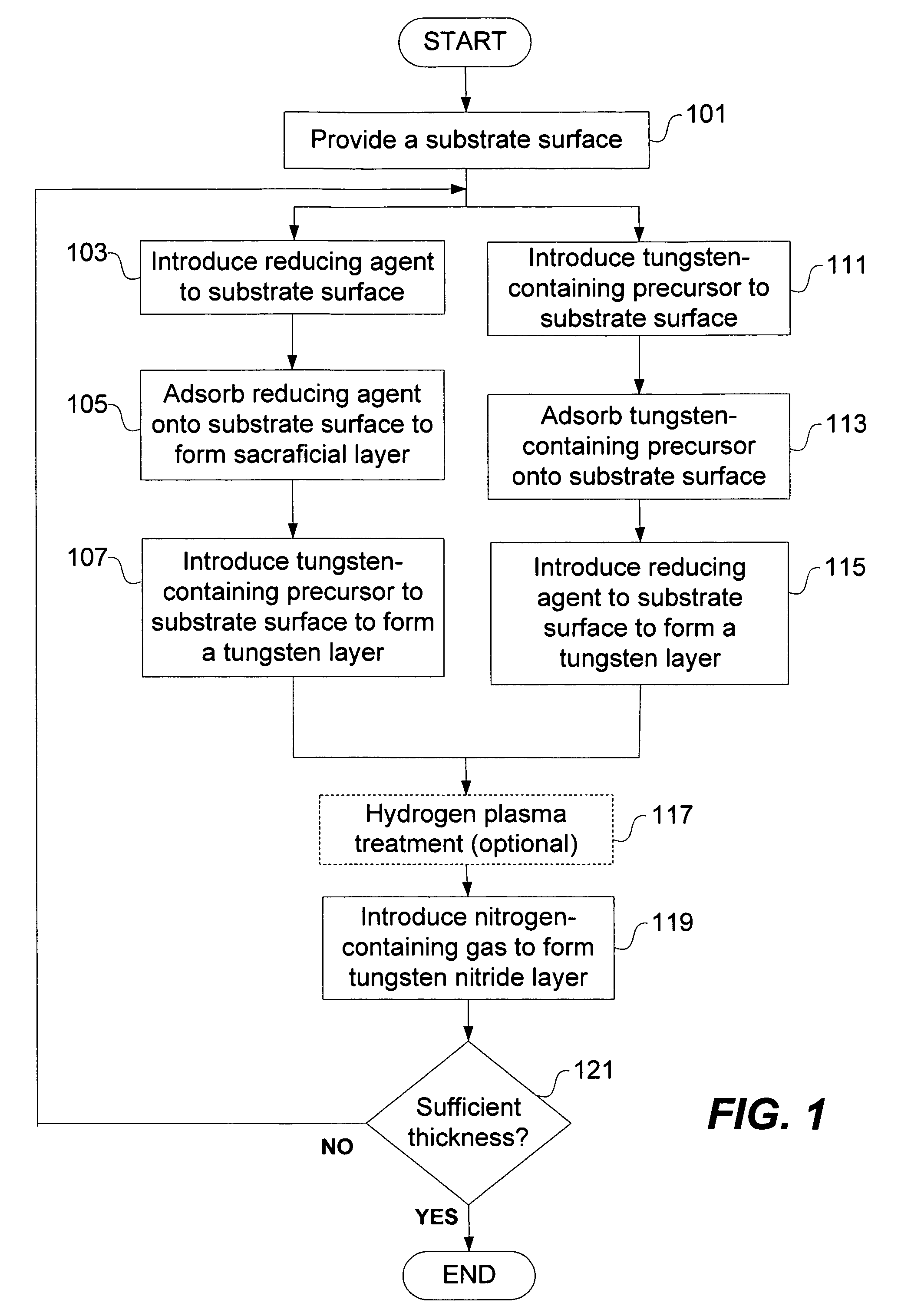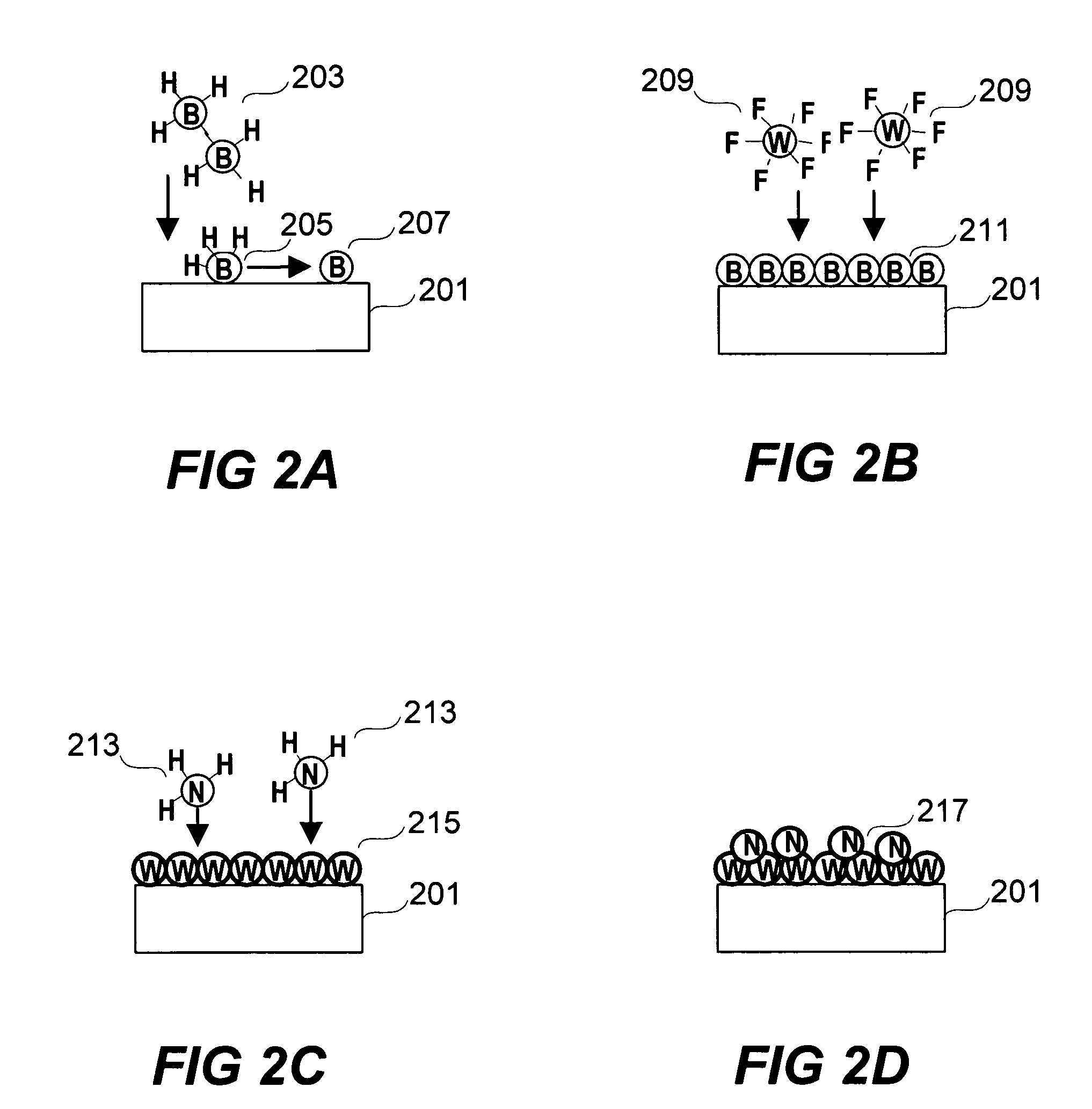Deposition of tungsten nitride
a technology of tungsten nitride and pnl, which is applied in the direction of chemical vapor deposition coating, coating, metallic material coating process, etc., can solve the problems of poor step coverage in high aspect ratio trenches, vias and contacts, and the wide application of wn, so as to achieve good tungsten nitride adhesion to the substrate, good step coverage, and fine control of deposition thickness
- Summary
- Abstract
- Description
- Claims
- Application Information
AI Technical Summary
Benefits of technology
Problems solved by technology
Method used
Image
Examples
Embodiment Construction
[0022]Introduction
[0023]As indicated, the present invention provides methods for depositing a tungsten nitride layer, especially for applications in which the tungsten nitride is deposited over dielectric surfaces and wherein thin, conformal and adhesive layers are required. Preferred methods involve pulsed nucleation layer (PNL) deposition techniques, which will be described in detail below.
[0024]One preferred approach to the PNL process involves first depositing diborane (or other boron-containing precursor) on a substrate surface to form a “sacrificial” boron-containing layer. This sacrificial layer subsequently reacts with a tungsten precursor to form tungsten. The diborane deposition process is not a conventional self-limiting ALD type deposition process. Rather, the diborane reacts on the dielectric surface to decompose into a boron film. The reaction can proceed as long as the substrate is continually exposed to diborane. However, to ensure that a limited amount of tungsten i...
PUM
| Property | Measurement | Unit |
|---|---|---|
| processing temperatures | aaaaa | aaaaa |
| coverage | aaaaa | aaaaa |
| critical dimensions | aaaaa | aaaaa |
Abstract
Description
Claims
Application Information
 Login to View More
Login to View More - R&D
- Intellectual Property
- Life Sciences
- Materials
- Tech Scout
- Unparalleled Data Quality
- Higher Quality Content
- 60% Fewer Hallucinations
Browse by: Latest US Patents, China's latest patents, Technical Efficacy Thesaurus, Application Domain, Technology Topic, Popular Technical Reports.
© 2025 PatSnap. All rights reserved.Legal|Privacy policy|Modern Slavery Act Transparency Statement|Sitemap|About US| Contact US: help@patsnap.com



